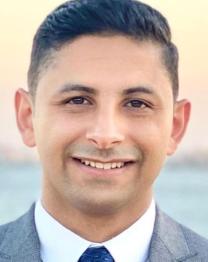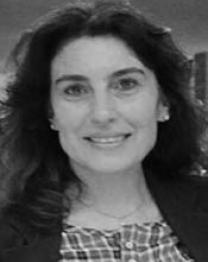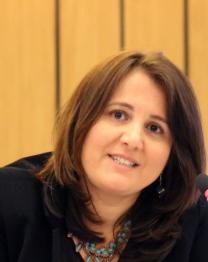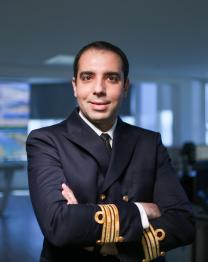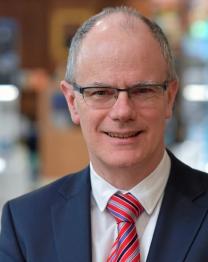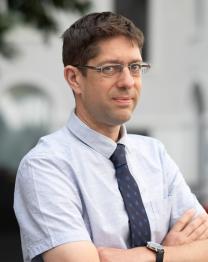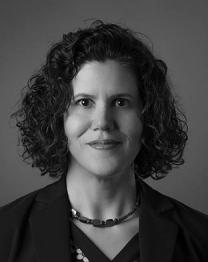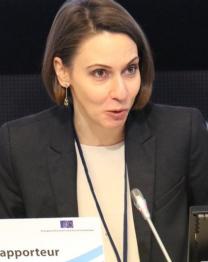Reunión Multianual de Expertos sobre Transporte, Logística Comercial y Facilitación del Comercio, undécimo período de sesiones
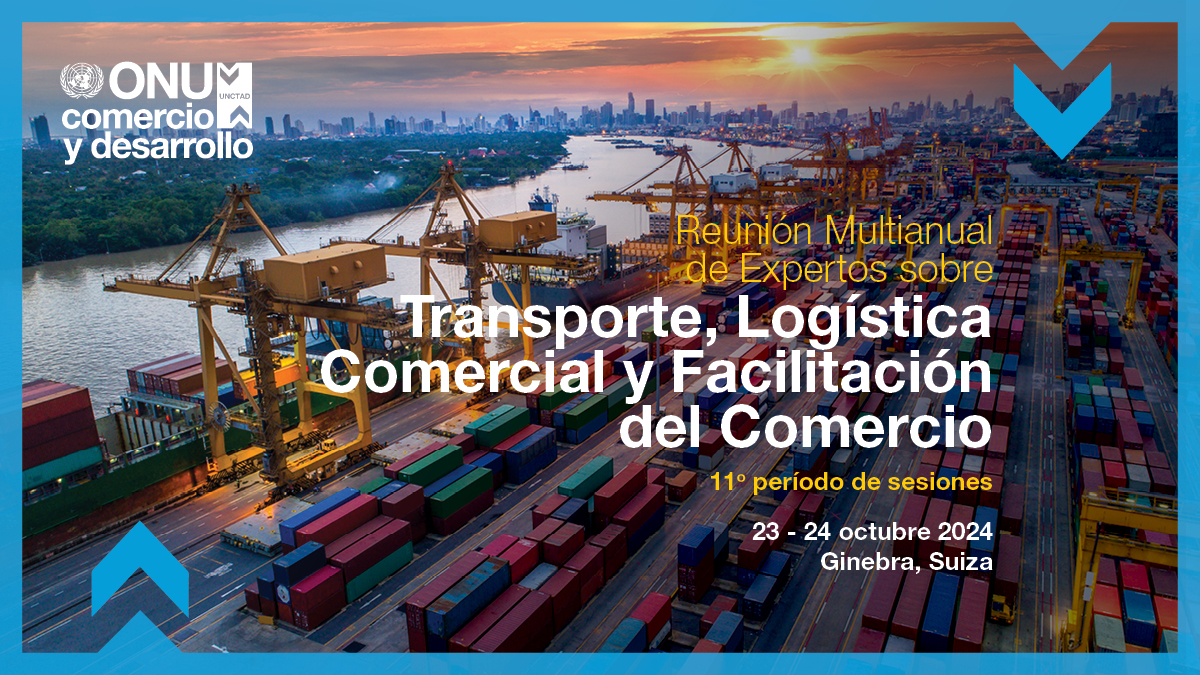

Shamika N. Sirimanne is the Director of the Division on Technology and Logistics of UNCTAD. She leads UNCTAD's trade logistics programme, including the work on trade facilitation, maritime transport, port management, and e-commerce and the digital economy. She also supervises UNCTAD’s largest technical cooperation programme, ASYCUDA—the Automated System for Customs.
Ms. Sirimanne has extensive experience in development policy, research and technical cooperation gained from international organizations, national governments, think tanks and universities. Prior to UNCTAD, she served as the Director of the ICT and Disaster Risk Reduction Division of the UN Economic and Social Commission for Asia and the Pacific (ESCAP), where she spearheaded major regional cooperation programmes such as the Asia-Pacific Information Superhighway initiative, and Regional Drought Monitoring Mechanism.
During her tenure with ESCAP, Ms. Sirimanne also headed the trade facilitation programme, and led the macroeconomic policy work and ESCAP’s flagship publication, Economic and Social Survey of Asia and the Pacific. Prior to that, Ms. Sirimanne was with the UN Economic Commission for Africa (ECA), where she led the economic policy team and the Economic Report on Africa, the flagship publication of ECA. She has also worked for the Canadian Ministry of Finance and the World Bank. Ms. Sirimanne holds a PhD in Economics.
Ahmed Elshazly is Senior Economic Researcher equipped with extensive experience in Maritime transportation economics (about 12 years); I am working on developing marketing and pricing policies to attract more vessels on different routes to transit the Suez Canal.
Education
Bachelor of Economics, Faculty of Economic & Political Science , Cairo University at 2010
Master of Economics in ""The impact of Suez Canal's development projects on the world Seaborne Trade ", Suez Canal University, 2018
PhD Researcher in Economics – Benha University 2022 till now.
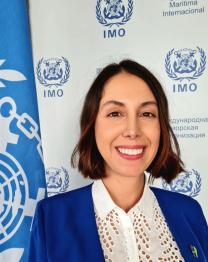
Aideé Saucedo Dávila is a Technical Officer at the UN International Maritime Organization where she focuses on global regulations to reduce greenhouse gas emissions from international shipping and their potential impacts on States. She has 15 years of professional experience, including on global climate governance, international climate negotiations and international cooperation to address climate change and other environmental issues
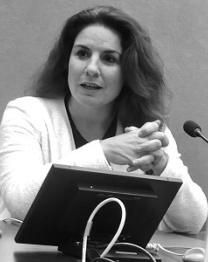
Celine Bacrot is Senior Economic Affairs Officer, Trade Facilitation Section in the Division of Technology and Logistics in UNCTAD. She has over 25 years of work experience with a focus on trade and economic development, regional integration and political economy. From 2003 until 2008, she worked in UNCTAD as focal point of the Enhanced Integrated Framework (IF) for the Least Developed Countries (LDCs) on the formulation of trade development strategies.
Afterwards, she spent more than 10 years based in East Africa working for several UN agencies (UN-Habitat and UNICEF) and set up a consultancy firm in Arusha, Tanzania, working on trade projects, mainly regional integration, trade development strategies, and trade facilitation in the EAC region and Asia-Pacific. From 2014 until 2020, she was the regional coordinator for the UNCTAD Trade Facilitation project in East Africa.
She is now based in Geneva and works as senior trade advisor in UNCTAD HQ on trade facilitation, trade logistics and regional integration issues at global level. She has a Master in Economics with a specialization in Economic Development as well as a Degree in Political Science, Development and Co-operation from the University of Paris-La Sorbonne.
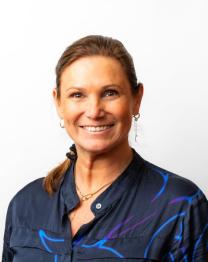
Prof. dr. Elvira Haezendonck (Vrije Universiteit Brussel and Solvay Business School) is Full Professor (Gewoon Hoogleraar) at the Vrije Universiteit Brussel (VUB) and Visiting Professor at the University of Antwerp (UA), as well as at Erasmus University of Rotterdam (Maritime Economics and Logistics). Her research covers topics in the field of sustainable strategies and management, applied to infrastructure, (port) clusters and complex projects.
She has published various articles, books and book chapters in relation to sustainable strategies, project evaluation, competitive strategy and stakeholder management, and since 1996, she has been involved in over 100 national and EU research projects on for example strategic analyses and impact assessments in/for ports and infrastructure, and on complex project management. She teaches several strategy and (project) management courses on both bachelor and master level.
She also takes up multiple board positions within and beyond academia. In 2022 Prof. dr. Elvira Haezendonck was elected as first female president of the International Association of Maritime Economists (IAME), the global academic association of maritime economists, and re-elected in 2024 for a second term. Since 2010 she held four consecutive Research Chairs at VUB on Public-Private Partnerships (2010-14 and 2015-2018), on Infrastructure Asset Management (2019-2023) and currently one on Agile and Futureproof Infrastructure for Transport. Another 2 chairs have recently been appointed to her on Circular Monitoring for Ports, and Masterclasses in Futureproof Leadership and Strategy.
Frida Youssef is the chief of the Transport Section within the Trade Logistics Branch at UNCTAD.
She has more than twenty-five years of professional experience in areas related to trade, logistics, commodities, finance, and sustainable development, which has given her the opportunity to build, lead and motivate research and technical assistance programmes, geared towards developing countries in a broad range of issues, including commodity supply chains and structured finance, public-private partnerships (PPPs), maritime transport and ports, transit transport and corridors, and cross-cutting issues such as environment, climate change, gender, finance and investment. She is a co-author of the UNCTAD's annual Review of Maritime Transport. Frida holds an MBA from Boston University and an MA in International Affairs from the Hautes Etudes Internationales - Paris.;
She is a member of the Steering Committee of the Global Network of Export-Import Banks and Development Finance Institutions (G-NEXID). She is also on the Steering Committee of the Port Chapter of the World Association of PPPs Units and Professionals (WAPPP).
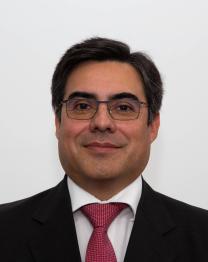
Mr. Gonzalo Ayala is Knowledge Management Officer at the Human Resources Development Section (HRDS) – TrainForTrade (TFT) at United Nations Trade and Development (UNCTAD) in Geneva, Switzerland. He holds a degree on Engineer in Electronic Systems with a master degree in Network Conception and Architecture from “Telecom Paris”. Before joining the UN system he worked in the private sector in Bolivia, where he developed his expertise in telecommunications and data networks.
Mr. Ayala, 18-year experience in the United Nations System. He is the Coordinator of the UNCTAD Port Management Programme for Latin America and the Caribbean with the goal to support efficient and competitive port services. He also coordinates the technical assistance projects facilitating sustainable economic development through training and capacity development in Latin America and the Caribbean.
Hassiba Benamara is a maritime transport and trade economist. She has over 25 years of professional experience in transport and trade logistics. She holds a graduate degree in Economics and an undergraduate degree combining Economics and Political Science from the University of Ottawa (Canada).
Since joining UNCTAD in 2005, Hassiba has been responsible for various files dealing with maritime transport and trade. She contributed to articles and book chapters focusing on maritime transport economics, security, and sustainable shipping, and co-authored 18 editions of the UNCTAD annual Review of Maritime Transport. Areas of work include seaborne trade, port developments, climate change mitigation and adaptation, transport costs, supply chain security, sustainable freight transport, corridor management, and maritime supply chain resilience.
Before joining UNCTAD, Hassiba has been working for the Canadian Ministry of Transportation in the international shipping and international trade divisions, respectively. Working areas spanned marine insurance and liability, arrest of ships, maritime liens and mortgages, maritime security, antitrust immunity, liner conferences, cabotage, and transport services trade liberalization.
Hicham Kharoufi is a seasoned maritime professional with a strong background in naval architecture, engineering, and port operations. Holding a Merchant Marine Officer diploma from the Higher Institute of Maritime Studies (ISEM Casablanca), Hicham further enhanced his qualifications with a Master of Science in Naval Architecture and Ocean Engineering from Pusan National University in South Korea. His specialization lies in ship design and production optimization.
With a career spanning over several years, Hicham has held pivotal roles within the maritime industry. As a Port Officer at TANGER MED PORT AUTHORITY, he has been instrumental in streamlining port operations and optimizing port calls. Prior to this, he served as the Manager of Marine Technical Workshops in Agadir, where he gained valuable hands-on experience on ship building and propulsion systems.
Currently, as the Head of Port Call Optimization & Invoicing at TANGER MED, Hicham spearheads a strategic project aimed at enabling Just-In-Time operations and elevating TANGER MED to a leading position among global ports in terms of performance and efficiency.
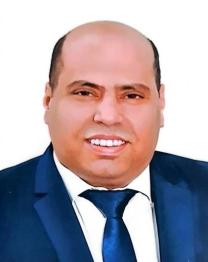
Hossam Abdelkarim is head of Maritime Economics Section, Suez Canal authority. responsible for Economic research studies for Suez Canal including Suez Canal tolls study.
Mr. Abdelkarim has more than 27 years of diverse professional experience in the field of Economics and Maritime Economics research studies.
Education
PhD ., (Strategic Management) AIN SHAMS Univ., 2018.
M.Sc., (Quality Management) Arab Academy for Science Technology and Maritime Transport, 2011.
B.Sc., (Economics), Faculty of Economics & Political Sciences , Cairo Univ., 1993.
James Hookham is Secretary General and a Director of the Global Shippers Forum (GSF), the voice of cargo owners in international supply chains. He is a graduate in Environmental Science from the University of Bradford and completed a master’s degree in the safe transport of dangerous goods at the University of Manchester.
James early career was spent with Exis Technologies (now part of National Cargo Bureau) developing the world’s first remotely accessible computerised dangerous goods database and later served as deputy editor of Hazardous Cargo Bulletin.
Until 2020 James was Deputy Chief Executive of the Freight Transport Association (now Logistics UK) where he held numerous positions on UK, EU and global transport and logistics advisory bodies, as well as senior executive roles at one of the UK’s largest trade organisations.

Jan joined UNCTAD in 2003 and is Chief of the organization’s Trade Logistics Branch since 2016. The Branch implements research and technical assistance programmes in international transport and trade facilitation.
Previously, Jan worked six years for the UN ECLAC in Santiago de Chile, and two years for the IMO in London and Santiago.
Prior to this, he held part time positions as assistant professor, import-export agent, and seafarer. Jan has studied in Germany, UK, and Spain, and holds a PhD in Economics from the University of Hamburg.
Jonathan HEPBURN is a Counsellor in the Agriculture and Commodities Division of the World Trade Organization (WTO). He has twenty-five years' experience working on trade, public policy and sustainable development, especially in the area of agriculture, food security, and the environment, and has authored and edited numerous publications on these topics.
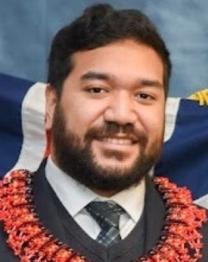
Mr. John Kautoke works as an Advisor and Legal Researcher at the Micronesian Center for Sustainable Transport based in the College of the Marshall Islands. He acts as Technical Advisor to the Delegation of the Kingdom of Tonga at the IMO and assists in all aspects of the GHG negotiations. He has previously worked as an Advisor to the High Commissioner for the Kingdom of Tonga, in London, who is the Permanent Representative of Tonga to the IMO.
John Manners-Bell is a highly experienced author, speaker and thought leader with a career spanning research, operations, strategy and marketing within the global supply chain industry.
He is Founder and CEO of consultancy Ti Insight which since 2002 has provided market intelligence to a range of blue chip customers and governmental organisations.
In 2021 he founded the Foundation for Future Supply Chain dedicated to improving the understanding of sustainability, risk, innovation, ethics and public policy in the industry. John was formerly Chair of the Logistics and Supply Chain Global Agenda Council of the World Economic Forum (WEF) and an Honourable Visiting Professor at London Metropolitan University.
He has authored six books, most recently 'The Death of Globalization', and the award winning 'Supply Chain Risk Management' now in its fourth edition.
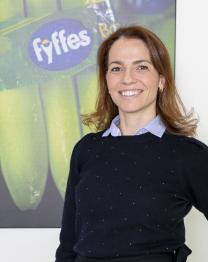
Marina Souza is the Chief Legal and Compliance Officer at [Company F], a role she has held since August 2021. With over 12 years of experience in the agribusiness industry, Marina's expertise spans beyond traditional legal counsel. She has also held significant roles in compliance and sustainability, acquiring valuable knowledge in maritime transportation.
Prior to her work in agribusiness, Marina spent 12 years at leading international law firms, where she developed substantial expertise in corporate law. A passionate advocate for diversity and inclusion, she has served on the board of WISTA (Women in Shipping and Trading Association) for the past four years. In this capacity, she champions initiatives that promote gender equality and support diversity within the shipping and trading sectors. Her dedication to these causes underscores her commitment to advancing equality in the workplace.
Boasting over 15 years of experience working in maritime decarbonisation, Ludovic Laffineur is a Special advisor at the Global Maritime Forum, where he leads the policy action group of the Getting to Zero Coalition and provides expert advice and guidance to the organisation’s leadership on policy, strategy, technical matters, and other areas of expertise. In his role, he engages in high-level discussions with policymakers and industry leaders to ensure that the revised IMO greenhouse gas (GHG) strategy is implemented through clear policy measures.
From 2008 to 2019, Ludovic served as the head of Environmental Affairs and deputy managing director at the Belgian Shipowners Association. During this time, he participated in International Maritime Organization (IMO) meetings on decarbonising shipping, doubling as an advisor to the Belgian maritime administration. Following that, he worked as a visiting professor, leading a team at the University of Antwerp to assess the advantages and disadvantages of hydrogen and hydrogen carriers for shipping. He holds a master’s in environmental sciences from the University of Antwerp.
Luisa Rodriguez has been working in UNCTAD for 15 years, 7 of which on trade logistics.
She is a member of the team drafting UNCTAD’s annual review of maritime transport. Her work also covers monitoring trends and analysis regarding transport networks and corridors, ports, transport facilitation, sustainable transport and maritime transport statistics. She is also responsible for a project related to promoting Sustainable and Smart ports in Africa.
Prior to her experience in the field of trade logistics, she worked for 12 years conducting policy-oriented research, combined with capacity building in the fields of policy reform in services sectors, trade policy and trade negotiations. She also worked for 9 years for the Government of Venezuela, 4 of which as a trade negotiator to the WTO.
She is Venezuelan. She studied international relations, has an MBA in international trade and a Master’s degree in Environmental Governance and Policymaking.
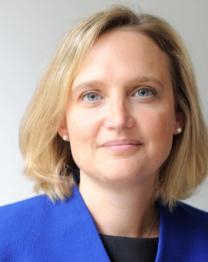
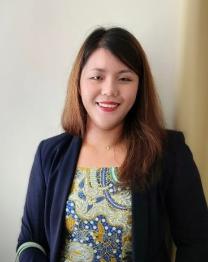
Minerva Lim is a regulator and policymaker working in the Maritime and Port Authority of Singapore (MPA). With close to 8 years’ experience in the maritime industry and a demonstrated track record in policy research and analysis, Minerva has covered a range of roles including regulation and development of the port and marine services sectors, strategic planning and strategic communications, and international relations.
Minerva leads Singapore’s international sustainability partnerships, including Singapore’s efforts on maritime decarbonisation at global platforms such as the International Maritime Organisation (IMO) and the UNFCCC, and works with global partners to implement multi-stakeholder green and digital shipping corridors with the Ports of Rotterdam, Los Angeles and Long Beach. She presently co-chairs the Green Shipping Corridors working group of the C40 Green Ports Forum, comprising 20 global ports.
She graduated from the University of Oxford with a Bachelor of Arts in History (First Class Honours) and holds a Masters of Philosophy in World History from the University of Cambridge.

Paula Bartolomeu has more than 24 years of experience in international companies and in the management of a complete set of administrative, sales and commercial processes and operations, in the Oil and Gas, locomotive manufacturing sectors, transport & logistics, Digital and Information Technology, Electrical Energy Production Systems and agribusines.
She brings accumulated expertise in leadership skills, expertise in problem solving and solutions, interaction with stakeholders at all administrative and political levels. She demonstrates strong leadership and responsibility in the execution of complex corporate business objectives and high visibility economic, political and social and highly complex projects.
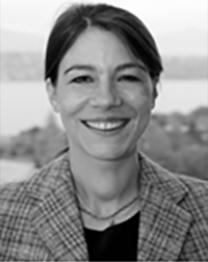
Regina Asariotis is Chief (a.i.) of the Trade Logistics Branch in the Division on Technology and Logistics of UNCTAD. She is also Chief of the Policy and Legislation Section, with responsibility for work on transport law and policy.
This includes extensive research, expert dialogue and technical cooperation on implications of climate change for maritime transport and trade, with focus on climate change impacts and adaptation for seaports and other critical transport infrastructure, including in SIDS. Before joining UNCTAD in 2001, Regina was a Senior Lecturer in Maritime Law at the University of Southampton. She holds a German law degree, an LL.M, as well as a PhD from the University of Hamburg and is a Barrister (England & Wales) and Attorney at Law (Greece), as well as Member of the Chartered Institute of Arbitrators (CIArb).
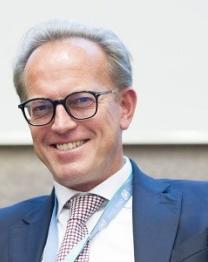
Richard Bolwijn is the Head of the Investment Research Branch in UNCTAD's Investment and Enterprise Division, based in Geneva. He leads the research for the annual World Investment Reports as well as UNCTAD’s technical assistance on investment promotion and facilitation in developing countries. Prior to joining UNCTAD, Richard was a senior manager in McKinsey & Company, Italy, advising corporate clients across Europe, Africa and the Middle East on strategy and business development. He also worked in the economics group of KPMG Consulting, UK. Richards holds degrees in International Economics from Bocconi University in Milan, Italy, and in International Relations from Groningen University in the Netherlands.
Tanja Buzek is Vice President of the International Trade Follow-up Committee of the European Economic and Social Committee (EESC) and Member of the Sections for Transport (TEN) and for External Relations (REX). She works on EU Liaison Affairs for the German services trade union ver.di, representing two million workers both in the private and public sector.
As senior trade union advisor in charge of EU affairs and representative towards the European institutions, her main focus is trade policy and maritime transport.
Since 2014 a member of the EESC, she developed the Committee’s positions on a number of maritime transport files such flag State requirements and training for seafarers. As rapporteur and co-rapporteur, she led the EESC’s work on several trade-related opinions, most prominently on the TSD Review. Tasked with the monitoring of the implementation of the Trade and Sustainable Development chapters in EU trade agreements, she chairs the EU Domestic Advisory Group for Singapore and is member for Japan, Korea and Vice-Chair for Canada and the UK.
From 2017 to 2019, she was member of the first Group of Experts of DG Trade on EU trade agreements, representing the European services workers union UNI Europa. She represented ver.di as a titular member in the Executive Committees of the European Transport Workers’ Federation (ETF), the European Public Services Union (EPSU) and the Public Services International (PSI). She is currently part-time seconded to the International Transport Workers’ Federation (ITF) with headquarter in London, to work on IMO matters.
Born in Vienna and of Austrian nationality, she holds a Master’s degree in political science and history.
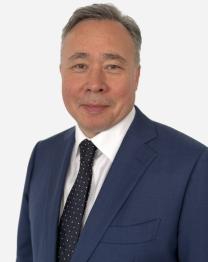
Victor Shieh is IAPH’s Strategy and Communications Director, after beginning as Communications Partner for its World Ports Sustainability Program in 2018. Victor has been involved in the maritime and logistics industry since he graduated in BCom from The University of Birmingham, first as a management trainee of the National Freight Consortium in the UK and Logistics Systems Manager before leaving for Spain to commercially manage an enterprise serving Iberian ports and logistics operations with real-time radio data solutions. He then moved to Belgium in 1998 to become European Business Unit Manager for a voice-based logistics data system, before joining Maersk subsidiary Safmarine Container Lines as Global PR and Communications Executive. After ten years in the role, Victor set up his own communications agency, advising maritime and logistics organisations on all aspects of corporate communications.
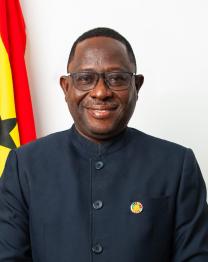
Mr Wisdom Ahiataku-Togobo has a BSc degree in Physic and Mathematics from the University of Ghana, Legon and an MSc degree in Renewable Energy from the University of Oldenburg, Germany. He also has a post graduate Diploma in Economics (Investment Appraisal and Risk Management) from Queens University, Kingston Canada. He is currently pursuing his PhD on Sustainable Energy Policy at the University of Energy and Natural Resources, Sunyani.
He started his carrier in the renewable energy sector in 1989 as an Associate Programme Officer with the then National Energy Board and has over the years developed his skills and capacity in the implementation of various renewable energy programmes for rural energy access. He is currently the Founder and Director of Alternative Technology Consult, Ghana (AT Consult Ghana) after his retirement as the Director Renewable Energy at the Bui Power Authority, a state owned company dedicated to the generation of electricity from renewable and clean energy resources.
He was the Director of Renewable Energy at the Ministry of Energy, Ghana for eleven (11) years and was very instrumental in the development and passage of the Renewable Energy Act, 2011 (Act 832). He also played a leading role in the development and amendment of the Bui Power Authority Amendment Act 2020 (Act 1046) and the Renewable Energy Amendment Act 2020 (Act 1045). Mr. Ahiataku-Togobo also chaired the Committee that developed the Ghana Renewable Energy Master Plan (REMP) in 2019.
Before then, he was the Renewable Energy Expert for the World Bank - Ghana Energy Development and Access Project (GEDAP). He has also worked as the Project Coordinator for the UNDP Household Energy Programme in Ghana.
Mr. Ahiataku-Togobo is a Board Member of the Ghana Nuclear Institute and a founding member of the International Renewable Energy Agency (IRENA). He is also a visiting lecturer at the University of Oldenburg, Germany and has a number of publications, articles and reports on renewable energy and sustainable development to his credit.
He is the candidate of the Republic of Ghana for election in November 2024 for the position of the Director General of the International Solar Alliance.
Mr. Yves Leyss possess in-depth working knowledge of various investment strategies and strong knowledge of favourable and unfavourable market environments as well as a firm understanding of investment and operational risks. He is a visionary leader who offers strong expertise in international investment, business development, corporate finance, fund management, shipping, trading, renewable energy, Oil & Gas and real estate.
Zera is the Global Head of Business Resilience Consulting at Maersk. Her leadership in the development of resilience programs, recognized with the Business Continuity Institute Award in 2020, underscores her commitment to industry-wide improvement and innovation. Holding an M.Sc. in Political Economy and certifications such as Associate Member of the Business Continuity Institute (AMBCI) and Certified Supply Chain Professional (CSCP), Zera brings a wealth of expertise to her field.
Furthermore, Zera has contributed to significant global initiatives, including the UNCTAD Port Resilience Guidebook and sharing her insights through a World Economic Forum blog.
Her involvement in crisis and contingency management, alongside contributions to podcasts and participation as a speaker at various forums, highlights her dedication to resilience. Leading the development of the Maersk Supply Chain Resilience Model in 2021, Zera plays a pivotal role in advancing the field of supply chain resilience with a focus on collective progress and knowledge sharing.



